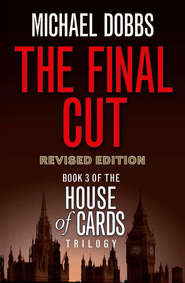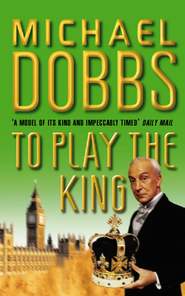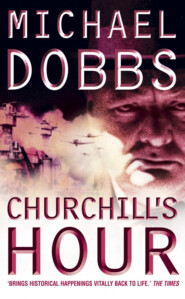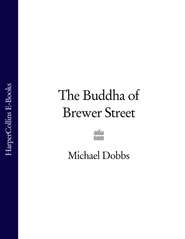По всем вопросам обращайтесь на: info@litportal.ru
(©) 2003-2025.
✖
Whispers of Betrayal
Автор
Год написания книги
2018
Настройки чтения
Размер шрифта
Высота строк
Поля
They’d betrayed him, too.
One minute he had been sitting in a bar off a cobbled backstreet in Osnabrück, having a last drink before being sent out to Kosovo, the next he’d been spewing his mince and tatties into his partner’s hands, his leg and his career shattered by a coffee-jar bomb. Kids’ stuff, those bombs. A simple affair, nothing more than a glass jar filled with scrapyard confetti and a compression detonator, and the top screwed on. The coffee jar had been thrown from the back of a motor scooter which disappeared into the night even before the coffee jar had hit the floor. The one brief sighting of the bombers suggested they were teenagers. Truly kids’ stuff. When the glass broke less than a dick-length away from Scully’s right foot, the detonator had decompressed and exploded, and the confetti – sharp, murderous chunks of metal with razor teeth – had chewed a path halfway through his leg. All in a day’s work for a Para keeping the peace on the streets of Djakovice or Pristina, perhaps, but not in a backstreet bar in Germany, not when he was off duty. Which is why, when they decided they had no further use for a soldier with only one leg, they offered him their very best wishes but no compensation beyond a meagre disability payment. They argued that Osnabrück wasn’t a war zone, the sort of place where you budget for a heavy cripple count. Hell, he was off duty. Drinking! Couldn’t expect the Treasury to pay for every last damned scratch. It was unfortunate, of course, and unexpected, but that’s what goes with being a soldier. Have to expect the unexpected. Of course, the two youths on the scooter might have been members of the pro-Serbian Prince Lazar terrorist group that was chucking bombs all over the place. That was entirely possible, but not provable. So, sorry, Skulls. Now, if you’d actually reached Kosovo, that would’ve been different, and Northern Ireland, too. Part of the home country. Sensitive. Soldiers weren’t supposed to get blown up and butchered on home turf, so if Scully had copped it there he’d have got a thousand pounds a stitch.
But Osnabrück wasn’t the Bogside. Scully hadn’t been an innocent victim. He’d simply been … well, unlucky. Wrong place, wrong life. A trooper with a bad break. And only one leg. As if he’d fallen down stairs on a Friday night. And if they paid out to every soldier on the basis of bad luck, where would the System be?
So Scully’s career had disappeared, and with it his wife. Then Scully, too, shortly after that.
Until tonight.
Amadeus was about to launch himself after the RSM, but now his wife was at his side, dragging him back, as always she dragged him back. Anyway, Amadeus knew there was little point in pursuit; if Scully didn’t wish to be found then he would not be found.
Suddenly Amadeus found himself overcome by a feeling he could only describe as envy. Envy of Scully, of this man in the gutter. Of his freedom, his ability simply to be able to disappear and leave the whole miserable mess behind him. God’s bollocks, it had come down to that. He was jealous of a fucking tramp.
His wife was summoning him, demanding he find a taxi. The call of duty. At one point in the Gulf War, during his tour with the SAS, Amadeus had been leading a Scud hunting patrol and in the darkness of the desert night had stumbled across a recce company of Iraqis. They shouldn’t have been there, according to the oxymorons at Army Intelligence, and even if they were they shouldn’t have offered any resistance, certainly not a fire fight. With only seven men Amadeus had captured 43 Iraqi regulars – 49 if you counted the body bags. Stopped an entire Iraqi company. For that they’d given him the Military Cross. Now all he did was stop taxis. Two young women brushed by, arm in arm, their young faces full of life. They were laughing – not with him, not even at him, they simply hadn’t noticed he existed. To them he was just another anonymous, middle-aged man stuck in a crowd. A cold, sodden cloak of self-loathing suddenly wrapped itself around Amadeus’s shoulders. He found himself reaching for another cigarette, his hand shaking, the cigarettes all but tumbling from the packet.
Then the loathing overwhelmed him. His hand clenched tight and, with all the strength he could find, he crushed the pack of cigarettes as once, when his rifle jammed, he had crushed the neck of an Iraqi conscript until the terrified eyes had begun to bleed in their sockets. All in the service of his country. A country that no longer wanted him, and thousands of others like him, like Scully. A country whose leaders had betrayed those who had served them most loyally.
He spilled the offending cigarettes into the gutter, slamming his heel down and grinding them to pulp underfoot. He didn’t want them any more. What he wanted, what he truly bloody wanted out of this mess, for himself, for Scully and all the others, was … what? Not their careers back, not even justice, it was surely too late for that. But perhaps an apology, an acknowledgement that they had been treated wrongfully, that all this cut and slash had gone too far. Belated recognition that they were men. Of valour, and of value. Not to be discarded like some cigarette pack in the rain.
It wasn’t much to ask for, an apology, but to men of honour even a small sign of contrition can heal so many festering wounds. Amadeus stood in the rain, at one of those turning points that mark a man’s life and throw his future unto the hazard, looking up and down this foreign-infested street, and decided upon his course. It was time for action, in the tradition of any wronged British soldier.
He would write a letter. To the Daily Telegraph.
Less than half a mile away from the cracked paving stone on which Amadeus stood resolving to change the world, Thomas Goodfellowe was entering upon a personal crisis of his own. The rain had hesitated and he decided to avoid the scramble for taxis in New Palace Yard after the House had adjourned. With a wary eye cast at the low clouds swooping overhead, the Honourable Member for Marshwood unlocked the chain securing his bicycle – it wasn’t safe nowadays, even left in Speaker’s Court – and resolved to risk the ten-minute ride back to his apartment in Chinatown.
He needed the fresh air. The last two hours had been spent in the manner of a small schoolboy on detention duty, wriggling in discomfort on his seat while he endured a debate about the war against drugs. The war was going exceedingly well, according to the Minister, a former car assembly worker by the name of Prosser who had MUM tattooed on the knuckles of one hand and DAD on the other, a diminutive man who kept rising and falling on the tips of his toes as though peering over the top of a trench under enemy fire. Drug seizures had declined sharply in the last year – proof positive, in the Minister’s view, that the smugglers and cartels no longer saw Britain as a soft touch, scared away by sniffer dogs and the force of his own Napoleonic will. His new shoes squeaked in acclamation.
Trouble was, this was the self-same Minister who, a year previously, had bobbed up and down at the Despatch Box to claim credit for a sharp increase in drug seizures, ‘unambiguous evidence,’ he had claimed at the time, of his ‘commitment in the war against these weeds of evil’.
Fair enough, Goodfellowe had concluded, consistency in politics was usually nothing more than evidence of a closed mind, but in Prosser’s case it seemed scarcely a mind at all. The man hadn’t the wit to appreciate the absurdity of his logic, nor the grace to laugh it off when it was brought to his attention. Goodfellowe had done so, brought it to his attention, intervened in jovial fashion to remind the House of the words the Minister seemed to have lost somewhere along the way.
The Minister, however, had been unappreciative. His eyes narrowed, his knuckles cracked, Mum had chased Dad around the Despatch Box and Goodfellowe had been reduced to parliamentary pulp. Such was the prerogative of Ministers. And the lot of backbenchers.
Goodfellowe had shuffled tediously through the final Division Lobby feeling much like a cow passing through the gates of a milking shed. It had been a long night and several of his colleagues were showing unmistakable symptoms of ‘the staggers’, the parliamentary equivalent of BSE in which the victims stumble aimlessly about their democratic duties, particularly after a heavy dinner – although the political variant of the disease rarely proved fatal. Many members had been known to survive in that condition for years. Thank God they had the Whips to prod them along and to take over when their own faculties failed.
Particularly Whips like Battersby.
Battersby was an oversized man with a figure like a deflating balloon and a face that brought to mind a cauliflower. A couple of outer leaves stuck out from the top of the cauliflower in passing imitation of hair. The Battersby mind could never be described as broad but, in the exercise of his duties, it was extremely singular. He was what was known as the Whip of Last Recourse. It was his function to deal with those Members who had reached that point of utter confusion in which they started rambling about ‘conscience’ and ‘principle’ and refused the invitation to enter the milking shed. At that stage Battersby would reach into his badly cut and over-large jacket and pull out a little black book. The production of this well-thumbed volume was a gesture that inspired remarkable piety, for in it were recorded all the known telephone contacts for that particular Member. Starting with The Wife, of course. Then The Parliamentary Secretary. Also The Constituency Agent. In the case of an alcoholic, the book held the number of The Doctor or The AA Group, and with a gambler, perhaps even The Accountant or The Bookmaker.
But the most potent entries in that little black book seemed to be those numbers that a Member struggled to keep most private – the ‘OI’ numbers, as they were referred to in Battersby’s shorthand. What those in the Whips’ Office called ‘the numbers of the night’. The places where the Member was mostly likely to be found in the hours after the sun had set. The numbers of The Mistress or The Lover.
In Battersby’s book and in his meticulous script, these names were divided into two categories and marked as either ‘OI-1’ or ‘OI-2’. These categories differentiated between ‘Occasional Indiscretion’ and ‘Ongoing Involvement’. Of course, the collection of these numbers was more of a hobby than a necessity since all his Members had waistband pagers by which they could be contacted, but Battersby liked to keep ‘that little personal touch’, as he explained it.
The errant Members themselves were marked with an ‘FU’ designation. ‘FU-1’ indicated ‘Family Unaware’, thereby rendering the Member open to coercion. These Members he liked, even had affection for, so far as his politics allowed. But he drew the line at the ‘FU-2s’. From Battersby’s point of view, those marked with the awesome ‘FU-2’ branding were outcasts, worthy only of eternal exile or – still better – execution as soon as an appropriate scaffold could be nailed together, for it indicated the small number of Members who had not only sniffed at the skirts of perversion but who had grabbed at them and lifted them high. These were the most dangerous of parliamentary colleagues, the Members who were in the habit of switching off their pagers. Who were ‘Frequently Untraceable’. And therefore ‘Fundamentally Unreliable’. And many other things besides.
All were recorded, noted down in Battersby’s lexicon of lusts. His diagnostic skills were something of a legend; a Member need only to have tarried for a few hours beneath a duvet he hadn’t bought himself and Battersby would have discovered not only the number of the bedside telephone but even the tog-value of the duvet. Production of the dog-eared manual at the regular surgery he held in the Whips’ inner sanctum had a similar effect to a cattle herder producing a revolver – cures amongst those beasts afflicted by the disease of conscience proved almost miraculous.
Battersby was a bully. Goodfellowe found him breathing down his collar as he waited his turn in the milking shed.
‘Still shagging that waitress, Goodfellowe?’ Battersby enquired, addressing the back of Goodfellowe’s neck. It was meant without undue maliciousness, almost as humour, as one might have asked after a result at tennis, but Goodfellowe had already played the victim once that evening and was in no mood for a rematch.
‘Did you have garlic for dinner, Alfred?’ Goodfellowe responded, not bothering to turn round. He sniffed. ‘Yes, definitely garlic. And Guinness.’
‘Something’s taking your eye off the plot,’ the Whip growled, responding in kind, his tongue working around his teeth as though in search of a lost sweet. ‘Must be the waitress. ‘Bout time you came round, old chum, and remembered the first duty of every backbencher.’
‘Which is?’
‘To be loyal to his Prime Minister, of course.’
‘And his second duty?’
The question seemed to startle Battersby. ‘Hell, there’s a second?’
Goodfellowe at last turned to face his pursuer. ‘Ever wondered why they keep you in the Whips’ Office, Alfie? Why they never give you a proper job or allow you out amongst real people?’
‘It’s because I’m loyal. An inspiration to others.’
‘It’s because if you fell ill in the outside world they wouldn’t know whether to take you to a hospital or the Natural History Museum.’
‘Don’t push it, sunshine.’
‘And what are you going to do? No, don’t tell me, let me guess. You’ll confiscate my bicycle pump? Or cover my saddle with superglue?’
Battersby remained silent for a moment. Goodfellowe was a notoriously awkward sod, a man who had a mind of his own and absolutely nothing of relevance to the Whips. No position, no ambition, nothing to lose. So no weak points, no leverage. An archetypal FU-2. And Battersby was beginning to feel uncertain of his ground. Had they really put garlic in the steak-and-kidney?
‘Anyway, something you ought to know.’
‘What’s that?’
‘The waitress,’ Goodfellowe continued. ‘She owns the restaurant.’
With that, Goodfellowe was gone, democratic duty done and on his way home, leaving behind him the over-ripe odour of the milking shed and savouring the fresh air – although in London everything was relative, particularly the concept of fresh air. Whitehall was still crowded with traffic grinding its way towards Trafalgar Square and even the rain hadn’t managed to wash the taste of burnt diesel from the night. He spat, then spat again when he found a glistening maroon Ministerial Rover parked ostentatiously across the new green cycle lane, blocking his route. The vehicle’s driver was leaning against the wall of the nearby Cabinet Office, smoking a cheap Dutch cheroot.
Goodfellowe felt his fuse beginning to burn. It was barely a month since they had painted this cycle lane, and then only after years of lobbying. It represented a small stream of green hope washing through Whitehall. Now Ministers were using it as a car park.
Yet like all London cyclists who lived in hope of survival, Goodfellowe was prepared. Whistle to his lips, as was his custom when fighting heavy traffic, he blew to attract the driver’s attention. The driver turned, stared impassively from the shadows of his wall, dark eyes unblinking, his face lit like a Halloween mask, then returned to his cheroot.
Goodfellowe blew again, impatiently, a shriller blast, but Ministerial drivers were a law unto themselves – why, they even had little silver badges issued by the Metropolitan Police to prove it. This bastard wasn’t for moving. And the rain was back.
Exasperated, Goodfellowe engaged a lower gear and began to manoeuvre his small collapsible bicycle out into the roadway. But the gears were stiff, unoiled, reluctant, and the distraction caused him to be careless. He bent to his task, head down, and twitched at the handlebars, but no sooner had he moved out from the kerb than his world was all but turned on its end as he found himself hurled back towards the gutter by the bow wave of an advancing double-decker. The bus screamed past, almost brushing his shoulder. A collapsible bike pitted against fume-belching spray-spewing red-metal monster. No contest. Goodfellowe ended up drenched.
The front wheel wobbled in despair. The Ministerial driver smirked.
Suddenly Goodfellowe realized he knew the fellow. From years ago, but reasonably well. The smirk belonged to a driver from the Whitehall motor pool who on frequent occasions had driven Goodfellowe during those heady days of fame and good fortune when he’d been a Minister at the Home Office. At that time their relationship had been all smiles and shared Polo mints, larded with gossip about the fumblers and fallers in the great parliamentary steeplechase, but now the driver stared at him, oblivious and unrecognizing.
Goodfellowe could feel the rain creeping like slugs down into his socks and his shoes. His suit had about as much chance of surviving its next encounter with the trouser press as Battersby had of winning Mastermind. It had been a mistake to use the bike. In weather like this it made him look a prat. Hell, perhaps it made him look a prat in any weather. But that still didn’t give the bastard the right to block the cycle lane!
There was some part of Goodfellowe that was Irish, on his father’s side, from old Queen’s County before they renamed it Laois. In spite of the English overlay, which was supposed to consign all of life’s furies to safe storage in some form of spiritual Tupperware, he took immense pride in these roots, if for no better reason than that it provided an ideal excuse for the occasional outburst. He was also on a diet, nothing but salads and crackers and no second glass of wine, which would make any Celt feel irritable. So, as another bus thundered past, Goodfellowe began to feel mightily and irresistibly pissed off. The whistle fell from his lips. He stood to his full height on the pedals, and let forth a stream of foulness.











